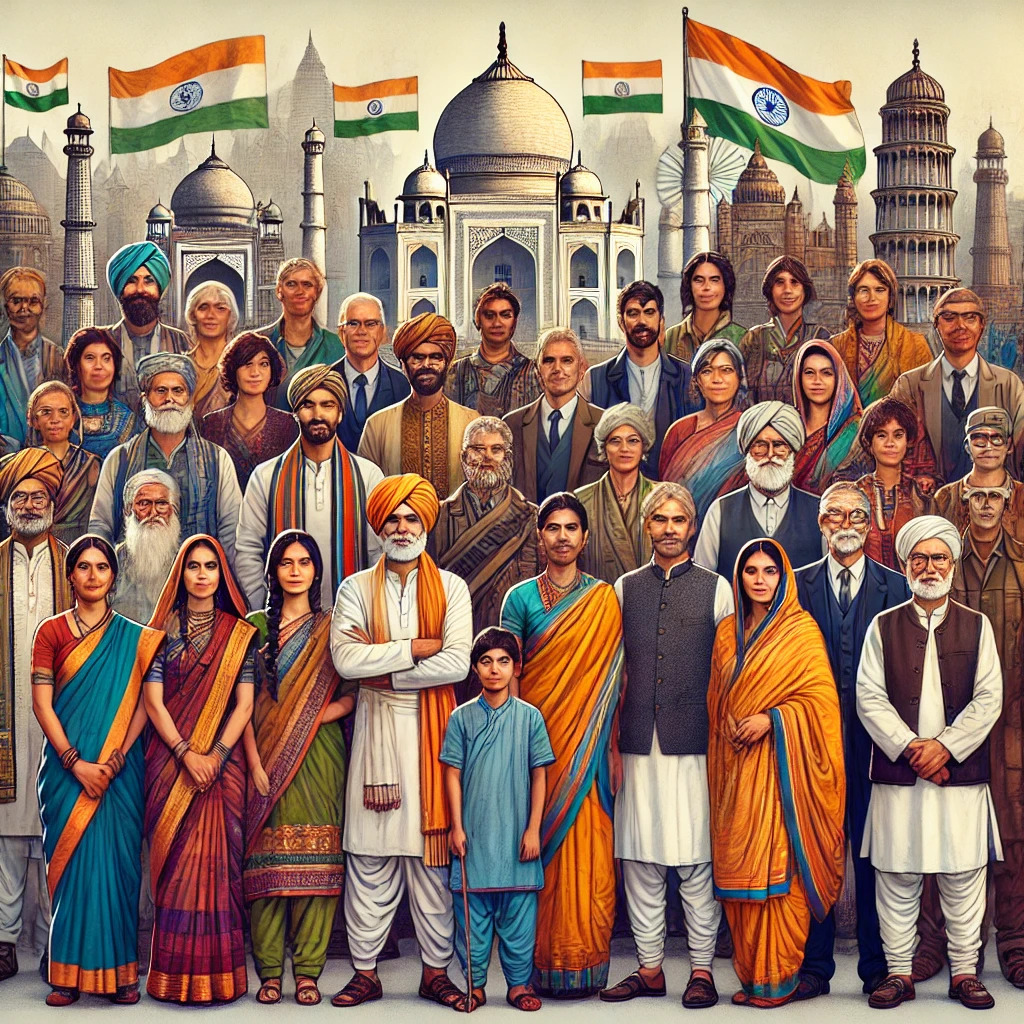
If these people welcomed you into their home, proudly sharing their rich culture, ancient recipes, and intricate customs refined over centuries, would you instead mock their struggles, publicize unflattering images, and discourage others from visiting?
Recently, I came across a travel vlog of a British gentleman traveling through India, where he captured scenes of poverty, noise, and unclean streets, mocking the country with biting commentary. The video, titled “I traveled to India so you don’t have to”, stirred a wave of emotions in me, but surprisingly, my reaction wasn’t rooted in anger or indignation for India. Instead, I felt embarrassed — not for my beloved host country, where I’ve lived for over 20 years, but for him, his mother, and his country. Allow me to explain.
There’s no denying that parts of India can be overwhelming, and yes, the poverty in some areas is heart-wrenching. What he showed wasn’t untrue — navigating through certain places in India can be difficult, and witnessing such hardships can be unsettling. But his response lacked something we generally learn from a young age: decency. He crossed an unspoken line — one we all learn not to cross when we’re guests in someone else’s home.
Our friend mocked a country that welcomed him, as though his discomfort gave him the right to do so. As a grown man, he should have realized that he was breaking one of the most basic rules of decency: respect for your host. He was a guest in India but showed no gratitude or humility. I can only imagine how ashamed my own mother would be if she saw me publicly belittling the home of people I called “friendly” in the same breath.
If you were invited to your neighbor’s home, would you mock their furniture, disrespect their customs, or refuse the food they offered? What if that neighbor was struggling but still welcomed you with kindness — would you broadcast their hardships to the world without acknowledging the things they hold dear and take pride in? If I did something like that and posted it for everyone to see, I wouldn’t just bring shame to myself, but to my family and my country. I don’t feel bad for India here; I feel second-hand embarrassment for the gentleman who made such a glaring public show of indecency.
India is so much more than a developing country grappling with visible economic challenges; it is an ancient, enduring civilization. It is one of the oldest trees in the forest, with roots that run deep and branches that twist and turn under the weight of thousands of years of history. If you were walking through a forest and came across a massive, gnarled tree, would you mock it for its rough branches and uneven shape? No. You’d stand in awe, humbled by its age, resilience, and ability to weather countless storms. When we see an elder — their body worn, their face lined with wrinkles, and their spirit heavy with wisdom — do we mock their frailty? No. We respect them, admire their strength, and hope one day to be as strong and wise. India is that elder.
I can’t tell you how many times I’ve heard locals, with charming sincerity, say, “Guest is God.” Before I came here, I’d never heard that phrase, but I’ve come to understand it deeply. It means I am always welcome in someone’s home here. And when I enter, I know they will treat me with grace and honor. In return, I take off my shoes and try to give back, in some small way, a piece of the graciousness they instinctively offer. India has a warmth and openness to strangers that is hard to match, which is why behavior like this is unfair.
My friend, we all have our bad days, and I’ve certainly had mine in India. There are times when the inconveniences and challenges of living in India can stir frustration. But even on those hard days, we must remember that we are guests in someone’s home. We should conduct ourselves with grace and honor the hospitality we’ve been given. That’s the first thing. Then, we should challenge ourselves to see the immense beauty in this incredibly diverse and welcoming country. And if we can’t manage the latter, the least we can do is avoid embarrassing those who raised us and who would be mortified to see us behave so poorly in our friendly neighbor’s home.
Like a wise elder who forgives the ignorant comments of an unruly child, India probably won’t hold your mistakes against you. She will likely welcome you back with the same warmth and grace that makes her so unique. But to our British friend, I say this: be a better guest next time. India is the oldest tree in the forest, the eldest person in the room. Show her the respect she has earned, not just for her beauty, but for her resilience, survival, and strength. Try to appreciate every part of her: not just her character and wisdom, but also her bruises, wounds, and scars from battles won and lost. Try to appreciate the way she weaves together the past and the present, the ancient and the modern. And remember: she may not be going where you are most comfortable, but she will arrive where she’s destined in her own time and in her own way.
…